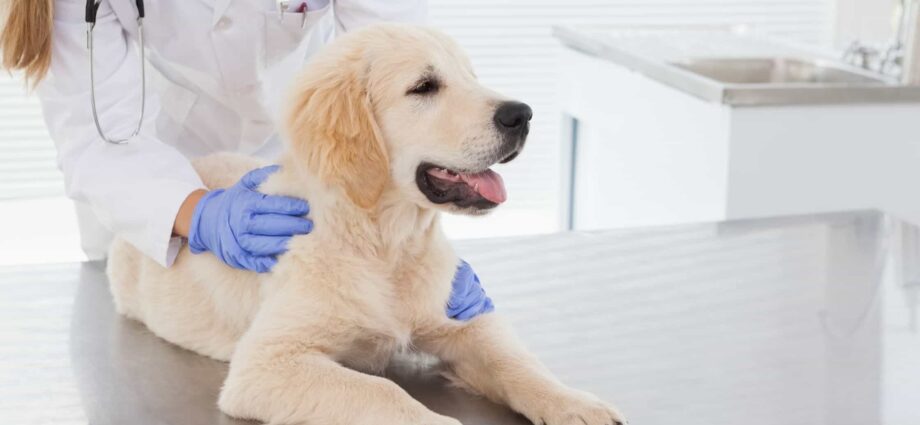Contents
Dog Insurance
What is dog insurance?
Dog insurance works like a mutual dog insurance. For a monthly contribution, the insurance reimburses all or part costs incurred for care or medications prescribed by the veterinarian. In general, there is an annual reimbursement limit.
Insurance works by reimbursing policyholders with the money collected for contributions. If a lot of people are insured, they can easily reimburse. If few people are insured or if contributors spend more than they contribute, the system does not work. Thus, the amount of your contributions should depend on the type of animal (old, breed subject to many health problems …) but also on the duration of the contribution (it is better to start contributing when it is young) and the how often you expect to see your vet. In the UK a large proportion of animals are insured. This allows veterinarians to offer a better quality of care and more advanced techniques of care and diagnosis.
According to the dog insurance contract, you will be reimbursed after returning a form completed and signed by the veterinarian. This form summarizes the diagnosis and your expenses for treating or vaccinating your animal. Often, it is necessary to attach an invoice signed by the veterinarian and the prescription if there have been prescribed drugs. Some insurance companies provide you with a bank card allowing you to advance the costs.
The mutual insurance company for dogs has a real interest in all dogs. Even a healthy, well-groomed 5-year-old dog can get sick at 10 years old and require expensive lifelong treatment with blood tests, for example, which you will be happy not to have to pay 100% each month. The monthly dog insurance premium is like setting aside money up front in the event of a severe blow.
What care will I be reimbursed for with my dog health insurance?
Please note that this may vary depending on the contracts.
There are conditions that dog insurance does not generally cover:
- Surgery costs incurred for congenital and hereditary diseases, such as dislocation of the small dog’s kneecap.
- Some insurance companies require you to fill out a health questionnaire before subscribing to rule out animals that are already sick.
- The costs of castration of the dog and sterilization of the bitch.
- Hygiene products without treating properties.
- Certain comfort medications (food supplements for the hair, etc.).
- Veterinary medical expenses incurred abroad.
- Some insurances do not accept puppies less than 2 or 3 months old and dogs over 5 or 6 years old for the first contract and then insure them for their entire life.
What the insurance reimburses (be careful to read your contract!)
- Expenses incurred as a result of illness or accident: surgery, additional examinations, hospitalization, drugs, prescribed drugs to buy in pharmacies, dressings … Within the limit of the annual ceiling guaranteed by the insurance.
- Preventive treatments such as the dog vaccine every year, dewormers and fleas.
- Annual prevention reviews, in particular for older dogs.
These conditions are frequently encountered contract conditions but there is a considerable variety of insurance contracts (the same insurance can offer ten or so different packages). Some insurance companies reimburse costs that others do not. Some insurance companies even accept unidentified 10-year-old animals without a health questionnaire. Read the offers carefully, ask lots of questions and don’t hesitate to ask your vet. Please note that some insurances offer contracts with reimbursements only on sickness costs, or only in the event of an accident … So read your contract carefully.
What to remember before signing your dog insurance contract?
It would be interesting if all animals were insured. First, for the health of the system, the more contributors the better the system functions. Then, because with dogs, we are never safe from one (or two) visit (s) to the veterinarian in the year for gastroenteritis because he has eaten something that ‘it was not necessary and because it is necessary to vaccinate them every year. In addition, the life expectancy of our dogs increases and with the onset of diseases of old dog which induce more or less expensive long-term treatments. Knowing that we have a mutual insurance company that covers veterinary expenses increases your peace of mind and makes you less hesitant when it comes to keeping your pet in good health.
More concretely, if you have a large dog or a French bulldog or a dog with a long life expectancy and you do not yet have a dog mutual, you can think about it, ask other owners of older dogs the same type to find out how much their annual health expenses are or to discuss it with your veterinarian. I advise you to take out good health insurance from an early age. Tailor your contract to the type of dog you own. A Bernese mountain dog will surely need better insurance than a bichon, for example.
The renewal is generally tacitly every year. If you want to change your contract, you usually have to cancel this insurance for a certain period BEFORE the anniversary date.. Moreover, if your dog dies, termination is not always automatic. Consider requesting a death certificate from your veterinarian.
There are specialized insurance companies for animals. You can also subscribe to it with your bank or your personal insurance (home for example), they sometimes offer insurance contracts for dogs.










